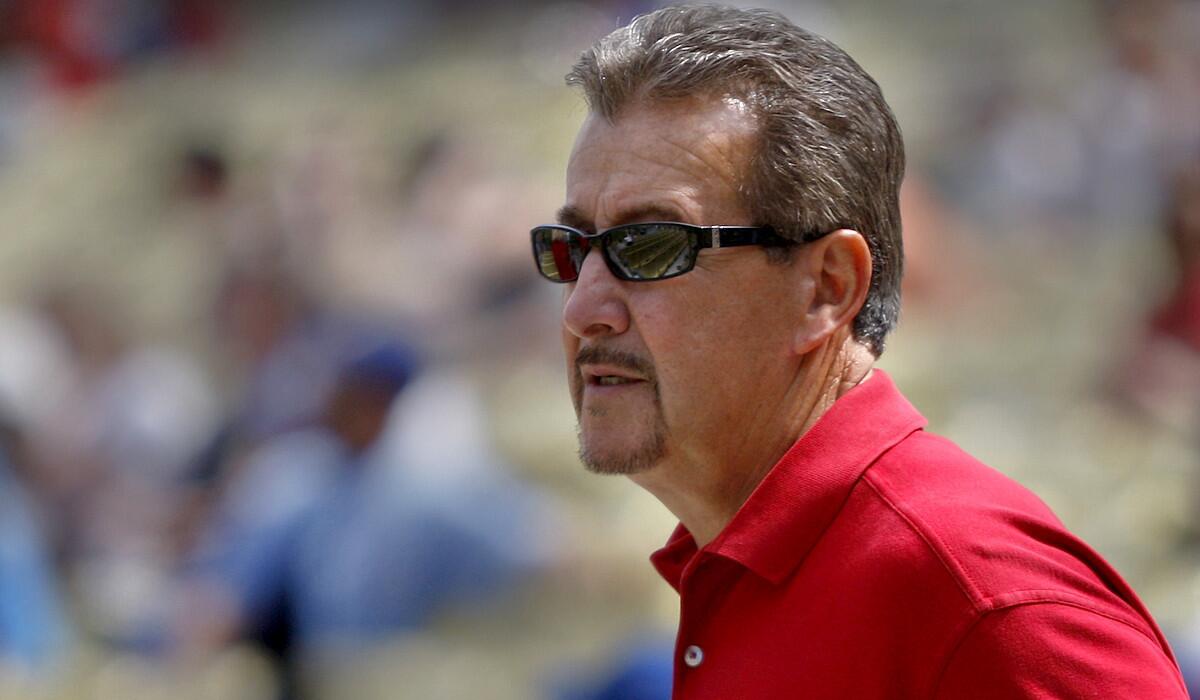Could the luxury tax divide MLB owners in labor talks?

As owners and players prepare for the looming start of collective bargaining negotiations, Angels owner Arte Moreno signaled Wednesday that the future of the luxury tax could be a source of tension among owners.
The luxury tax -- officially known as the competitive balance tax (CBT) -- is baseball’s alternative to a salary cap. Teams can spend whatever they like, but they are taxed on payrolls above a defined level.
That level has risen from $117 million in 2003 to $189 million in 2014, where it remains. Since the current system was adopted in a collective bargaining agreement that took effect in 2003, the level has never decreased from one year to the next.
On Wednesday, Moreno was asked why he preferred not to sign a free-agent outfielder to a long-term contract, in part because the Angels might exceed that level in 2016 but might not do so in 2017 and beyond.
The current labor agreement expires Dec. 1, 2016. Union chief Tony Clark said this month that he expects negotiations on a new deal to start in spring training.
With players concerned that large-market teams can use the CBT as a self-imposed salary cap, and with baseball’s revenues approaching a record $10 billion per year, the threshold would figure to rise in the new labor deal that would take effect in 2017.
“There’s a possibility it could go down,” Moreno said.
That would be unprecedented, under the framework in effect since 2003. Under the current system, teams pay anywhere from 17.5% to 50% on every dollar above the threshold, depending on how many times they have exceeded it.
“The small-market teams don’t believe that the penalty is high enough,” Moreno said, “or that the CBT [threshold] is too high – that they have really no chance to compete with someone who is spending $300 million, or $250 [million].”
The Dodgers paid a record $44 million in luxury taxes this year, on a payroll close to $300 million. The New York Yankees, Boston Red Sox and San Francisco Giants were the only other teams taxed this year.
“The owners have their own fights with each other,” Angels pitcher C.J. Wilson said after a union meeting this month in La Jolla. “The Marlins guys and the Yankees guys aren’t necessarily going to get along on everything. They will have a harder time coming to a consensus, because they’re in such different boats.”
More to Read
Go beyond the scoreboard
Get the latest on L.A.'s teams in the daily Sports Report newsletter.
You may occasionally receive promotional content from the Los Angeles Times.











